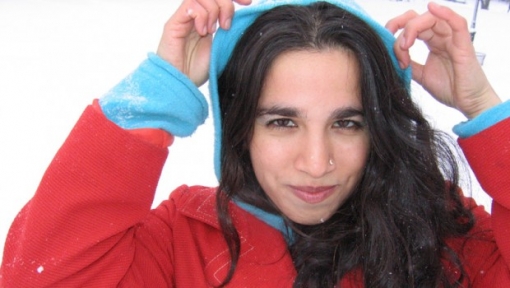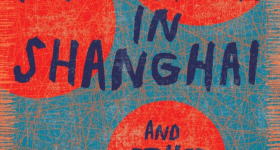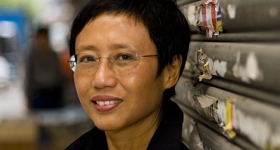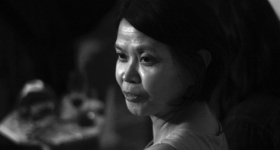I used to live in Queens, in a three-bedroom apartment with a grad student and a middle-aged Bolivian woman. Though the neighborhood was mostly Greek, a trip down the block spanned three continents. Everyone spoke another language: the guy selling coffee and bagels under the elevated train tracks spoke Egyptian; the woman pushing her stroller down the sidewalk, Spanish; the old men playing chess in the cement plaza, Greek.
I used to live in Queens, in a three-bedroom apartment with a grad student and a middle-aged Bolivian woman. Though the neighborhood was mostly Greek, a trip down the block spanned three continents. Everyone spoke another language: the guy selling coffee and bagels under the elevated train tracks spoke Arabic; the woman pushing her stroller down the sidewalk, Spanish; the old men playing chess in the cement plaza, Greek.
I later moved to Brooklyn, to a neighborhood divided by a road called Eastern Parkway. On the north side Caribbean people claimed the low-slung brownstones, on the south, Orthodox Jews. A few blocks from my apartment was the spot, in 1991, people rioted after a black boy was run over by a car in the motorcade of a Jewish leader.
There is great beauty in diversity, and great tension. New York City embodies these elements, but no borough reflects them as well as Queens. This borough is the setting through which Busha Rehman tackles these tensions, in part, in her debut novel Corona.
The novel is a fragmented collection of short stories written from the perspective of Razia, a Pakistani-American woman who, like the author, grew up in Corona, Queens. Razia lived in a tight Muslim community, but was disowned for refusing to participate in an arranged marriage. She leaves her family for the road, following a set of freewheeling instincts that seem to mirror the author's. (Rehman describes herself on her website as a "vagabond poet who traveled for years with nothing more than a Greyhound ticket and a bookbag full of poems.") The stories leap back and forth through time, following Razia's haphazard adventures through childhood and womanhood.
The title story, called "Corona (and I'm not talking about the beer),” sets the tone for the rest of the book. It's 1983, and Razia is in elementary school. She hears the Simon and Garfunkel song "Me and Julio," in which there is the line,"Rosie, queen of Corona." Why would Paul Simon sing about Corona, Razia wonders. The only white people she's seen in the 'hood are policemen or firemen.

The author, Bushra Rehman
Rehman's prose is unadorned, but effective. Razia has her own Julio, who she loves "in a way you only could when you were a child." All the other girls show off for him, but she doesn't: "In Corona, girls learned early to flash skin, flirt, chew gum, and play games to bring boys down to their knees, even though it would usually end up the other way around."
But Razia's love evaporates when she sees Julio harassing a Korean woman. In the scene, Julio sneers at the woman: "I don't need to tell you where I live you smelly ching-chong,"
The book trades heavily in race dynamics, sometimes as crudely and unsubtly as Julio's taunts. In story after story, Razia suffers some racial indignity, often at the hands of an ignorant white man. "We should just nuke those fucking Arab shits and get it over with," says one guy in casual conversation.
These scenes—expanding on a theme of brown people being perceived as un-American—can be predictable, preachy. More effective are Rehman's explorations of Razia's past, her Muslim identity, the way her liberalism and feminism clash and connect with her religious, cultural roots. This is where Rehman shines, where her prose becomes poetic.
In one set of stories, young Razia discovers a hidden stash of pornography and sets off to destroy it in order to save the souls of the women in the pages. Later, when Razia is older, less religious, she herself becomes the object of a lustful gaze while hitchhiking through Florida: "The old man looked at our thighs as if we were chicken being picked out at a church BBQ."
Noting the hypocrisy, Razia says, "It always amazed me the way some religious people, it doesn't matter what religion they are, go ga-ga over a little bit of skin. It burned me up."
Razia bounces from coast to coast trying to figure out her place. What does she want? Where does she belong? Along the way she confronts race, religion, politics and all the issues that divide not only the country, but the home she left behind—Corona. The novel can be a bumpy ride, but like Queens, it's vibrant, it's worthy of exploration, and it's undeniably American.
-
Arvin Temkar is a full-time journalist and part-time essayist. He’s hung out with cowboys in Brooklyn, eaten trash in the name of journalism, swam with sharks and interviewed the presidents of two countries. He speaks one language okay, two others poorly, and still wants to be in a punk band. Follow @atemkar.









Comments